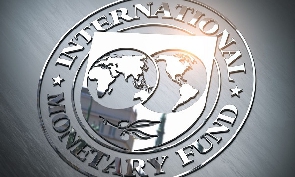 The International Monetary Fund (IMF)
The International Monetary Fund (IMF)
Since the economy experienced major headwinds in 2022, the Government of Ghana engaged the IMF for financial assistance on July 1, 2022 to restore macroeconomic stability, support balance of payments and others.
Ghana subsequently secured the first tranche of the $3 billion loan on May 17, 2023 after meeting all conditionalities. Ghana is currently awaiting to secure the second tranche of consisting of $600 million should the Executive Board approve the loan in January 2024.
Although Ghana’s economy is expected to be under an IMF programme for a 3 year-period, the country must meet a set of conditions per the agreement terms.
With close to a year under the 17th IMF bailout programme, the Bretton Wood institution has during the period issued some red flags to Ghana.
The IMF is said to have imposed some four major restrictions on the Government of Ghana under the deal.
L.I to restrict imports on 22 strategic items:
In November this year, government, through the Minister of Trade and Industry, Kobina Tahir Hammond, unsuccessfully tried to lay a legislative instrument (L.I.) to restrict the importation of 22 selected strategic products into Ghana after it was opposed by the minority caucus of the house and stakeholders in the business community.
An IMF report, according to a myjoyonline.com pointed that Ghana cannot restrict the importation of goods during the implementation of the programme.
The restrictions on Ghana are as follows:
*No imposition or intensification of restrictions on making payments and transfers for current international transactions.
* No introduction or modification of multiple currency practices.
* No conclusion of bilateral payments agreements inconsistent with Article VIII of the IMF Articles of Arrangement.
* No imposition or intensification of import restrictions for balance of payments reasons.
Review/Suspension of Gold-for Oil programme
In December 2022, government announced the introduction of Gold-for-Oil programmed aimed at stabilizing fuel prices and the local currency which was depreciating at an all time high.
Under the programme which was implemented in February 2023, the government pays for imported fuel products with gold purchased by the Central Bank.
But since Ghana turned to the IMF, it has raised some red flags over the programme calling for an amendment to the BoG Act that will feature a stricter limit for monetary financing, mechanisms to monitor and enforce compliance.
This simply meant that the BoG has to phase out the Gold-for-Oil policy. Central Bank Governor, Dr Ernest Addison recently said programme has achieved its purpose and is no longer necessary.
MA/NOQ